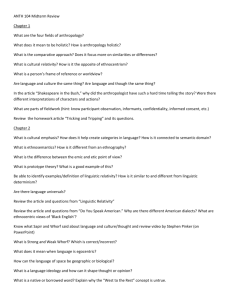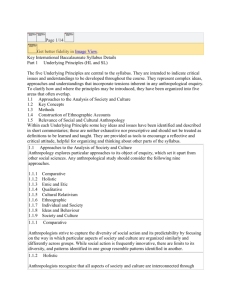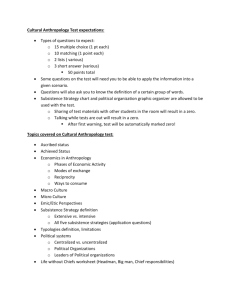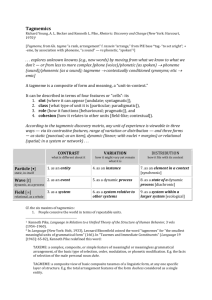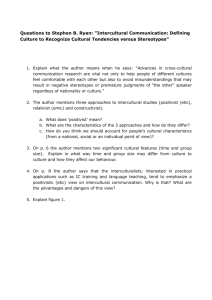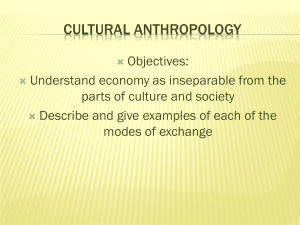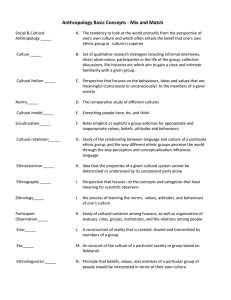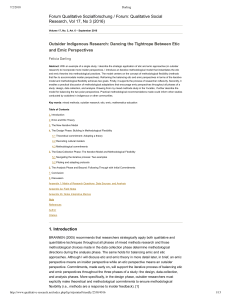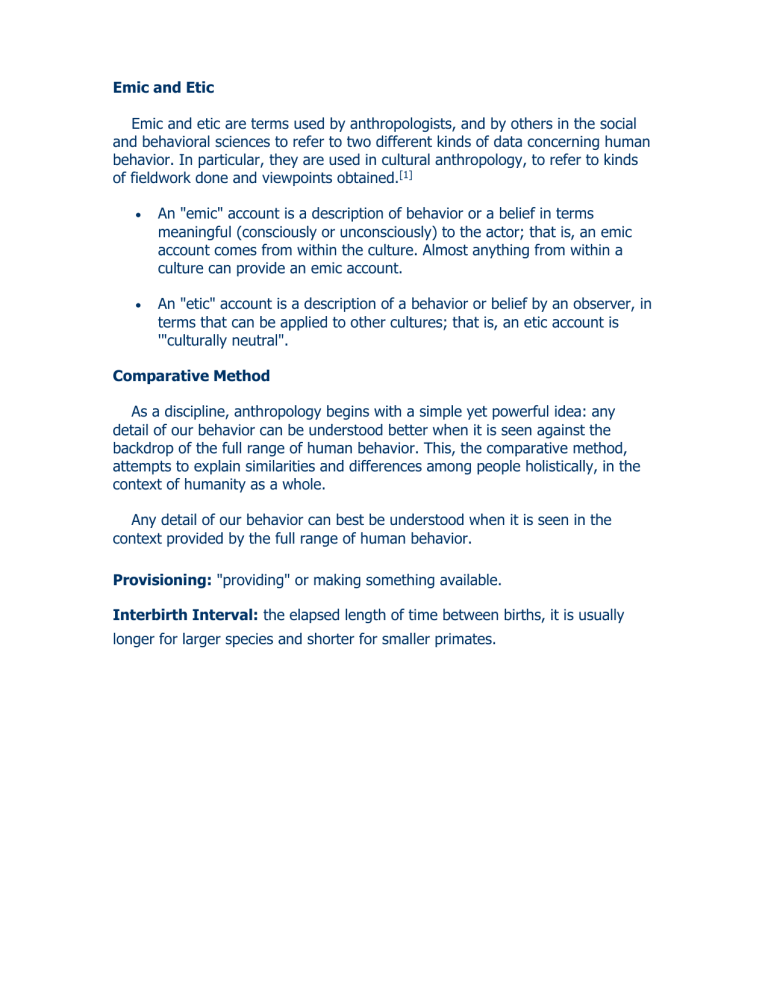
Emic and Etic Emic and etic are terms used by anthropologists, and by others in the social and behavioral sciences to refer to two different kinds of data concerning human behavior. In particular, they are used in cultural anthropology, to refer to kinds of fieldwork done and viewpoints obtained.[1] An "emic" account is a description of behavior or a belief in terms meaningful (consciously or unconsciously) to the actor; that is, an emic account comes from within the culture. Almost anything from within a culture can provide an emic account. An "etic" account is a description of a behavior or belief by an observer, in terms that can be applied to other cultures; that is, an etic account is '"culturally neutral". Comparative Method As a discipline, anthropology begins with a simple yet powerful idea: any detail of our behavior can be understood better when it is seen against the backdrop of the full range of human behavior. This, the comparative method, attempts to explain similarities and differences among people holistically, in the context of humanity as a whole. Any detail of our behavior can best be understood when it is seen in the context provided by the full range of human behavior. Provisioning: "providing" or making something available. Interbirth Interval: the elapsed length of time between births, it is usually longer for larger species and shorter for smaller primates.
